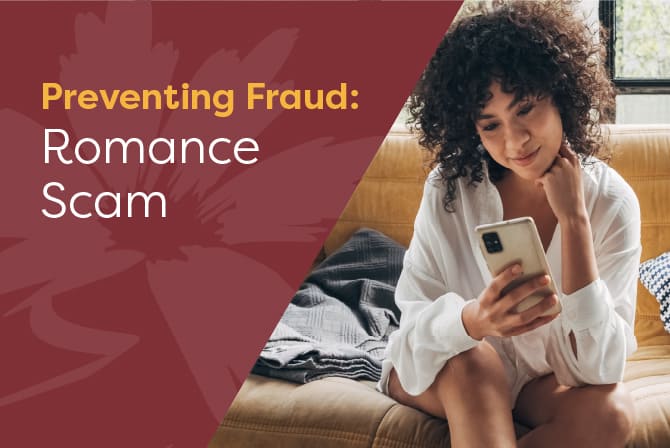Preventing Fraud: Romance Scam

One day, Isabella received a Facebook friend request from ‘Ivan Miller.’ She decided to accept the request. He messaged her and said he was looking for friends to keep him company while he was on military duty overseas. A few weeks after befriending her, a romance started.
“He kept saying he couldn’t wait for us to get married,” Isabella said. “We became very close, and he emailed me every day because it was easier for him than using Facebook.”
Ivan told her that he had some trouble with his credit card and couldn’t get funds to pay for a plane ticket to visit her. Isabella sent him $5,000 in gift cards to cover the plane ticket and some extra expenses until his credit card situation was figured out.
Then, he said his mother was sick and needed money for surgery and as soon as he paid the surgery fee, he would be on his way to Isabella. She wired him another $20,000. It was a lot of money to send, but she figured he was a good and honest serviceman and if things worked out, they would spend the rest of their lives together.
Here’s how to identify this scam:
Notice how the scammer:
- Professed he would marry Isabella quickly.
- Claimed he was overseas for work.
- Always had reasons why he needed to borrow money urgently.
- Requested Isabella buy him gift cards.
- Always made excuses to not visit Isabella.
Here’s how to protect yourself from this scam:
- Refuse to buy gift cards or send money to people you’ve never met in person.
- Be careful how much personal information you share on social network sites. Scammers can use your information and pictures to create a fake identity or to target you with a scam.
- Be wary of people you meet online. Sometimes these scams can last for extended periods of time.
- Talk to friends or family about the people you meet on social media and notice if any concerns come up.
For more stories like this one, visit www.ecu.com/files/FraudBooklet.pdf.
